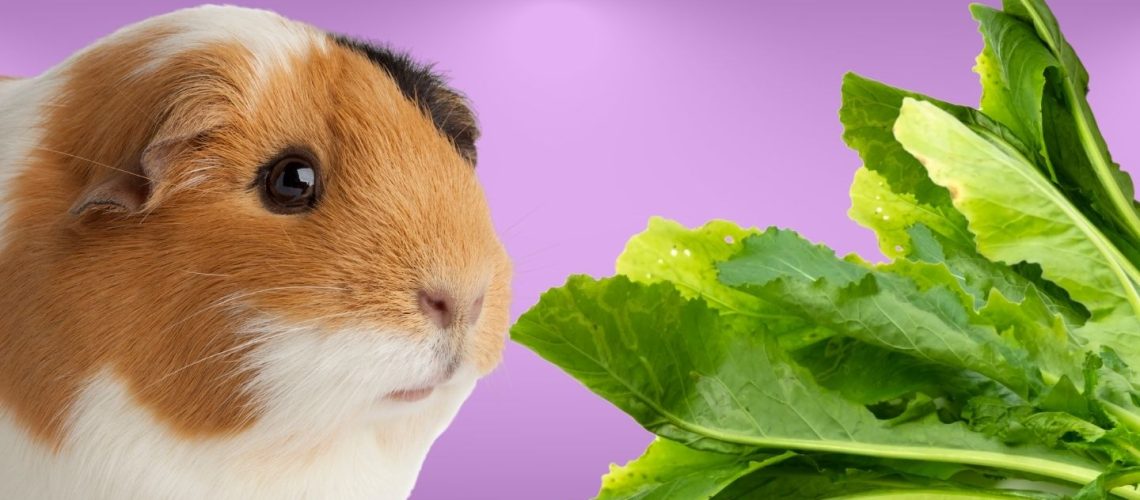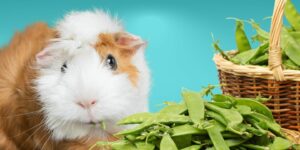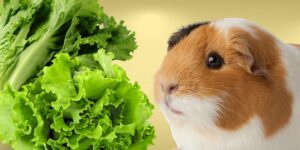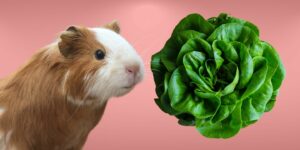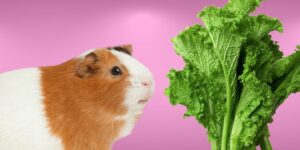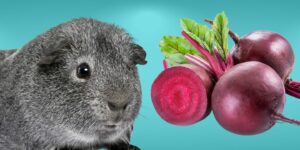Yes, Guinea pigs can eat turnip greens. This leafy vegetable is a good source of vitamins C, A, and K, as well as fiber and calcium. However, Guinea pigs should only eat turnip greens in moderation, as they are high in oxalic acid, which can cause health problems if consumed in large amounts.
Guinea Pig Diet Overview
A healthy Guinea pig diet should consist of hay, fresh vegetables, and a small amount of fortified Guinea pig pellets. It's essential to provide a variety of foods to ensure a balanced diet and prevent deficiencies.
Importance of Leafy Greens
Leafy greens are an important component of a Guinea pig's diet, as they provide essential vitamins, minerals, and fiber that support the animal's overall health. Turnip greens are an example of such leafy greens that can be a beneficial addition to a Guinea pig's diet.
Nutritional Benefits of Turnip Greens for Guinea Pigs
Vitamin C
Guinea Pigs and Vitamin C
Guinea pigs are unable to synthesize vitamin C on their own, which makes it an essential part of their diet. Vitamin C helps support a healthy immune system and prevents scurvy.
Turnip Greens as a Vitamin C Source
Turnip greens are an excellent source of vitamin C, with a single serving providing nearly half of a Guinea pig's daily requirement.
Vitamin A
Role of Vitamin A in Guinea Pig Health
Vitamin A is crucial for maintaining good vision and supporting immune function in Guinea pigs.
Turnip Greens as a Vitamin A Source
Turnip greens are also a good source of vitamin A, making them a valuable addition to a Guinea pig's diet.
Vitamin K
Role of Vitamin K in Guinea Pig Health
Vitamin K is necessary for blood clotting and maintaining healthy bone density in Guinea pigs.
Turnip Greens as a Vitamin K Source
Including turnip greens in a Guinea pig's diet provides a sufficient amount of vitamin K to support optimal health.
Other Vitamins and Minerals
Iron, Magnesium, and Potassium in Turnip Greens
Turnip greens also contain small amounts of other vitamins and minerals, including iron, magnesium, and potassium, which are important for a Guinea pig's overall health.
Risks and Considerations
Oxalic Acid Content
Effects of Oxalic Acid on Guinea Pig Health
Oxalic acid can bind to calcium and other minerals in the digestive tract, making them less available for absorption. This can lead to deficiencies and other health problems, such as bladder stones.
Balancing Oxalic Acid Content in Guinea Pig Diet
To minimize the risk of health problems, it's important to feed turnip greens in moderation and to offer a variety of other leafy greens as well. This will ensure that your Guinea pig is getting a balanced diet and avoiding overconsumption of any one type of food.
Variety in Leafy Greens
It's essential to provide a variety of leafy greens to your Guinea pig's diet to ensure they receive a balanced array of nutrients and minimize the risk of any single nutrient imbalances.
Serving Size and Frequency
Determining the Right Serving Size
A good rule of thumb is to offer about a tablespoon of turnip greens per Guinea pig, two times per week.
Recommended Frequency of Feeding Turnip Greens
Feeding turnip greens twice a week will provide your Guinea pig with the nutritional benefits of turnip greens without exposing them to excessive levels of oxalic acid.
Other Components of a Balanced Guinea Pig Diet
In addition to turnip greens, Guinea pigs should be fed a balanced diet of hay, fresh vegetables, and a small amount of fortified Guinea pig pellets. This will provide your Guinea pig with all the nutrients they need to stay healthy and happy.
Hay
Hay is a crucial component of a Guinea pig's diet, as it provides fiber and helps maintain proper dental health.
Fresh Vegetables
Other fresh vegetables, in addition to leafy greens, should be provided for a well-rounded diet. Choose vegetables that are low in oxalic acid to balance your Guinea pig's diet.
Fortified Guinea Pig Pellets
Fortified pellets provide essential vitamins and minerals that may not be present in adequate amounts in hay and fresh vegetables alone.
Conclusion
Turnip greens can be a nutritious addition to a Guinea pig's diet in moderation. By providing a balanced diet of hay, fresh vegetables, and fortified Guinea pig pellets, along with a variety of leafy greens, your Guinea pig will have all the nutrients they need to stay healthy and happy.

